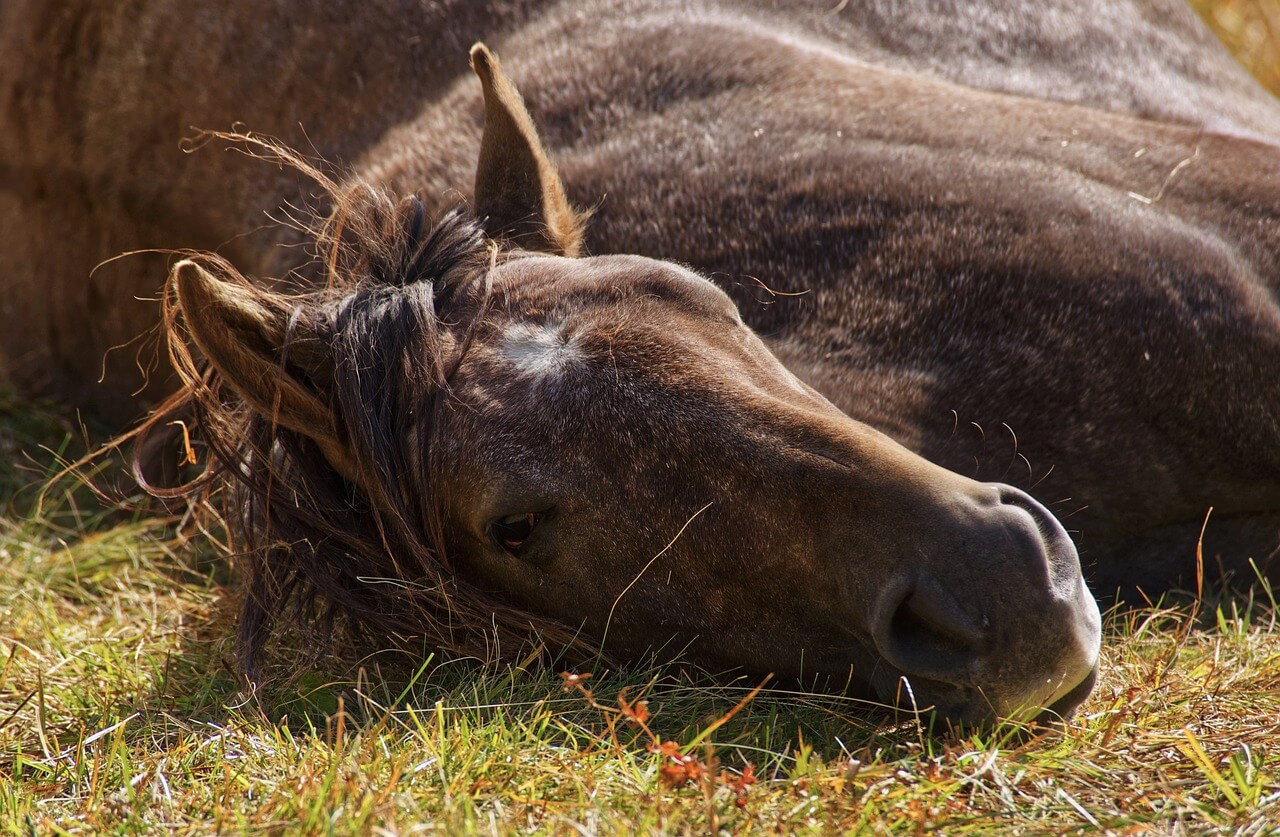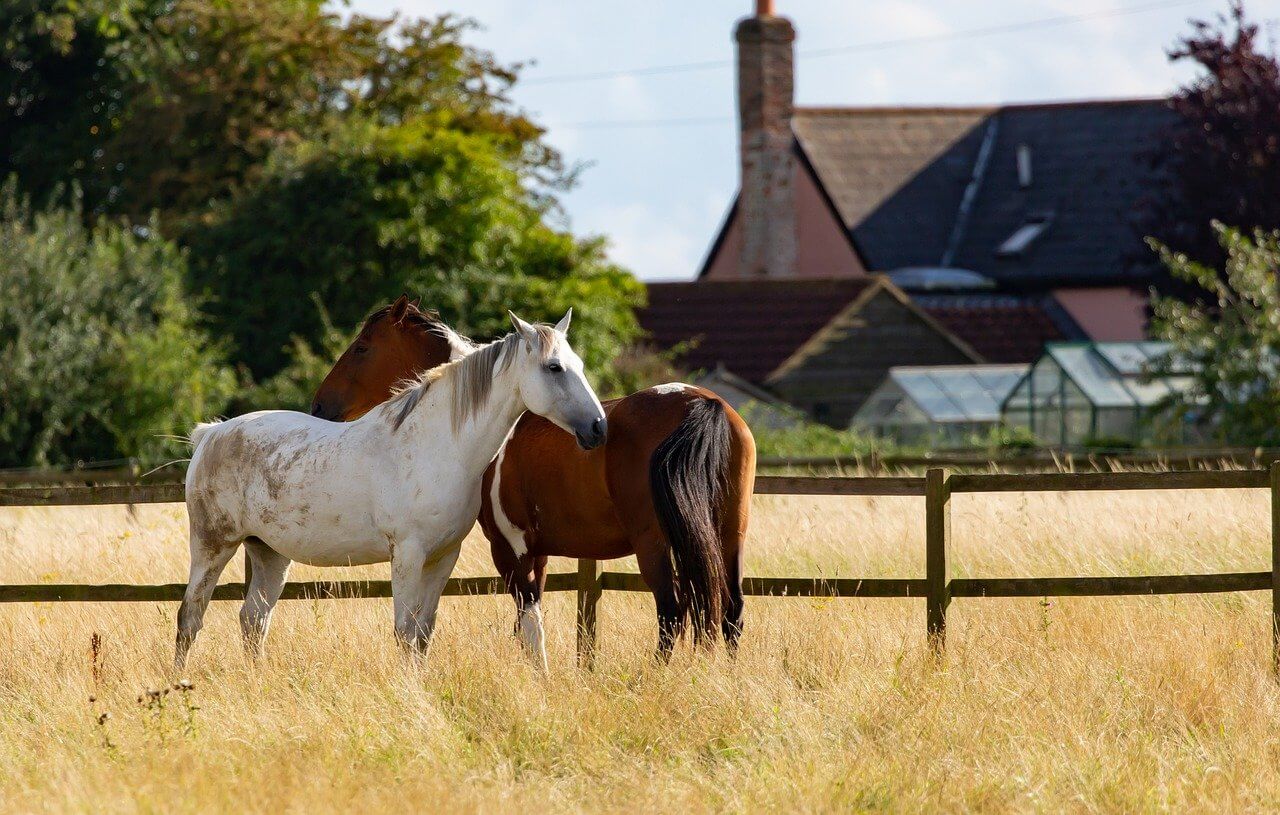Chances are, you’ve given some thought to your own end-of-life circumstances, from where you will be buried to what will happen logistically after your death. However, what do ranchers do when a horse dies? In this post, we’ll walk you through some of the most common scenarios so that you can be prepared for this type of situation, too.
What You'll Learn Today
What Happens When a Horse Passes Away?

Your first step when your horse dies should be to give yourself a bit of time to grieve. Horses are kept for many reasons, including as work animals, for show and athletic competition, and often, for pleasure riding and companionship.
As the owner of a horse, it will understandably be quite difficult to deal with the death of such a close companion. Give yourself a moment to come to terms with the fact that you have lost your animal.
If you knew your horse was sick or injured, you may have chosen to have it euthanized, either by a veterinarian or your own (typically, by shooting it).
By law, when a horse dies, either via a planned procedure or not, its carcass must be disposed of in a timely fashion. A post-mortem examination may be required if it is unclear how or why the horse died. This is especially true if you have other horses to whom various diseases may be spread.
If the veterinarian was the one who carried out the euthanasia, talk to them first when your horse passes away. Often, you can arrange for carcass disposal through the veterinarian.
What Do Farmers Do With Dead Animals?
There are several ways that farmers can handle dead animals, regardless of whether they’re dealing with cows, chickens, pigs, sheep, or some other type of livestock.
For animals that have to be euthanized due to an injury (not necessarily a communicable disease), often farmers will choose to simply butcher the animal and then eat or sell the meat. This produces little to no waste and requires less effort, sometimes, than having to bury an animal.
However, for animals like horses, that’s not going to be an option.
Instead, a farmer must turn to other options to get rid of the body.
Some common options include:
- Burying
- Cremation
- Landfilling
- Rendering facilities
What Do Ranchers Do with a Dead Horse?

There are a few ways in which ranchers can get rid of dead horses. Here are some of the most common.
Carcass Removal Options
For most people in most areas, there are services that will come and remove the deceased horse for you. Although this will likely cost some money, it is often the easiest in terms of emotional weight and logistics. Often, the service will take the horse away and either bury or cremate it.
If you live in an area where burying a horse is not legal, then a carcass removal service might be your best bet.
There are some areas in which hunts are still active in which a local hunt kennel might perform the euthanasia for you and then collect and dispose of the carcass – this is typically provided that the horse has not received certain drugs prior to its demise.
Cremating or Incinerating a Dead Horse
Burning is a common method of disposing of a horse’s remains. In this method, a horse’s carcass must not be burned via open-air burning – this can threaten air quality.
You’ll want to check with your local Environmental Protection Agency and Forest Services to find out what’s allowed in your area. In some cases, you might have to have a permit in order to dispose of a horse’s body in this way.
Can You Bring a Horse to the Landfill?
It might sound odd, but in some places, you can actually bring a horse’s body to the landfill. This isn’t allowed everywhere, but it’s worth calling your local landfill to see if this is something that can be done in your situation.
Should I Call a Rendering Facility?
Another option to dispose of a horse carcass is to bring it to a rendering facility. When a horse carcass is rendered, this means that the waste tissue is converted to useful materials (usually things like dog food) at a licensed facility.
Often, the facility will pick up the horse for you as long as it is away from the animal housing area.
Is it Legal to Bury a Dead Horse?
In most cases, it is legal to bury a dead horse. Logistically, however, this is one of the most difficult ways to deal with the body.
The reason for this is that horses are extremely heavy. Most weigh upwards of 1,000 pounds, meaning you will need a very large hole and a very large machine to move the body.
Such a hole will be impractical to dig even with the best soil conditions. You’ll need a piece of machinery like a tractor with a bucket or a backhoe to dig the hole. You can hire someone to do this, but it can be expensive.
Also, if you board your horse and don’t own the land outright, you shouldn’t assume that the owner will allow you to bury the horse there. If you do own your land and your farm is remote, you’ll need to make sure you can get the machine to wherever it is the hole needs to be dug.
There are some areas in which it is not legal to bury a horse unless it was kept as a pet. Those that were kept for commercial purposes may not be buried.
If you decide to bury, there are generally two methods of burial that you can choose from – trench burying and landfilling (as discussed above). Trench burying is simple and often the best option for small-scale farm owners.
Finally, if you live within city limits even if you are zoned agriculturally, you need to check with local laws to see if you can legally bury your horse on your farm. Some won’t allow horses to be buried within a set distance of a dwelling out of fear that it can contaminate the water supply.
Plan Ahead for the Unexpected
The best thing you can do when a horse passes away is to remain as calm as possible. Nobody wants to think about what might happen when their horses die, but unfortunately, it’s part of ranching that you just need to learn to accept.
Plan ahead whenever possible – building-specific handling facilities for sick or injured animals is one step you can take to ensure you have the capability to care for horses leading up to and shortly after their death.
Here’s a video that can give you an idea of how to plan ahead for a horse dying:
As they say, an ounce of prevention is worth a pound of cure – and while nothing will bring your horse back, following the advice given above to prepare in advance will give you some peace of mind when this unfortunate situation does arise.
Would you like to learn more about ranching? Here is a good start.